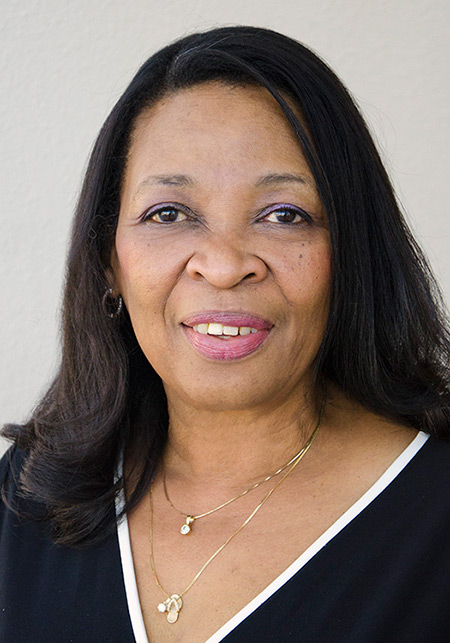Mar. 22, 2016
 As a teen undergoing an x-ray for a softball injury, Parsha Hobson thought her radiographer’s professional attitude and expertise were part of an easy job. Parsha recalls, “She looked and behaved so professionally that I admired her. I thought she had a really easy job, so I called the hospital to see how I could get that job.”
As a teen undergoing an x-ray for a softball injury, Parsha Hobson thought her radiographer’s professional attitude and expertise were part of an easy job. Parsha recalls, “She looked and behaved so professionally that I admired her. I thought she had a really easy job, so I called the hospital to see how I could get that job.”
What Parsha Hobson, M.P.A., R.T.(R), found was that it took an education. “Since I was already in community college, I got into the radiography program and discovered that I really had to work,” she remembers.
While the program wouldn’t be easy, it also showed her a career that would pull her into a professional community, keep her learning and allow her to give back.
“I fell in love with the profession, but it took me awhile to get used to it and think past, Oh, my god, I can’t believe I got myself into this.”
Parsha said it took her a few months to acclimate to the program, “but once the bug bit me, it was over. Now, 40 years later, I’m still at it.”
Now Parsha teaches future R.T.s at Passaic County Community College in Paterson, New Jersey.
From the Classroom to a Management Role and Back Again
Parsha worked at clinical sites associated with the radiography program while she attended community college. As an educator, she sees many of her students facing the same challenges she had along the way regarding the sacrifices that are necessary to attend school. “My husband was struggling and I was struggling because we got ourselves into a bind with me going to school and not being able to work very much,” says Parsha, “I immediately went to work because I had been a poor and starving student for a long time.”
Parsha took on two jobs after graduating with an associate degree from PCCC. That struggle and her family obligations also meant that earning a bachelor’s degree would have to wait. “I accomplished it in stops and starts as I advanced in my career,” she says.
Within a year of graduating with her bachelor’s degree from Montclair State University, Parsha became the radiology department supervisor at the hospital where she was working, and eventually moved into the administrative director role in another radiology department. “That was when I realized I needed more education,” says Parsha. She went on to earn a master’s degree from New York University.
At that time, Parsha’s mentor and friend Eileen Maloney tried to convince her to leave management and go into teaching instead of taking a job as a hospital department administrator, to no avail. However, Eileen did sow the seeds of participation in professional societies by encouraging Parsha to become involved in the ASRT. The first ASRT annual governance meetings that Parsha attended with Eileen were in the late 1970s, soon after she started in management.
“When I decided I was done with management, Eileen offered me a job at Passaic,” says Parsha. “And I’ve been working here for the past 23 years with her, so she’s been mentoring me along the way. When I first came to work with her, she encouraged me to become involved with the local affiliate, and I did.”
The move back to PCCC as an instructor opened the door to greater involvement on the professional side, including serving on the New Jersey Society of Radiologic Technologists and being asked to serve on the first ASRT Foundation scholarship committee.
From Service to a New Way of Giving Back
Parsha’s donation to the ASRT Foundation honors a commitment to quality patient care and is an homage to the professionalism that first drew her into the field. “I want to be sure that the ASRT Foundation continues forever. There will always be radiographers. There will always be the need for that role in the medical profession.”
She also acknowledges the mounting struggle that today’s students at PCCC, an inner-city school, have in maintaining a balance between education and survival.
“I have very bright students who come from all kinds of backgrounds, with some supporting families, taking care of parents or raising younger brothers or sisters. So going to school takes a real sacrifice. I just want the Foundation to be there for students like that.”